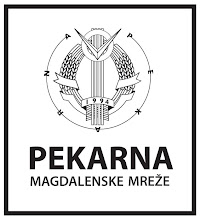In troubled times, it’s always a good endeavor to take some time to reflect. In politically troubled times, the reflection can be a first, necessary step towards change.
More than ever in recent history, reflecting on the mechanisms that create ideology, and on the mechanics behind why we believe and act the way we do is imperative. In this intricate, elaborate net of factors that shape our political consciousness, art occupies a special place.
The
Stop Trik International Film Festival 2016 tried to analyze the place that the stop motion animation holds in the propagation and idealization of political beliefs. The events gravitated around the theme of propaganda, and focused on the social and political engagement of animated art.
The festival is political in its form as well as in its content. All events are free of charge and open to the public. The Grand Prix is not awarded by a jury, but by the popular vote of the audiences. This year there was also had a jury, but it was a student one, with the aim of shaping the critical vein of its members, and to give them the opportunity of practicing the deconstruction and analysis of the animated art.
There were two competition slots, the International Stop Motion Competition, with stop motion shorts from the last two years, and the Borderlands Competition, with short films placed at the border between stop motion animation and classical animation.
The Stop Motion Agitation section featured films that served political regimes and economic powers of the 20th century, using similar techniques when promoting and idealizing socialist principles, as well as capitalistic ones.
Meshes of Despotism was a visual collection of Czech artworks that run in a loop in the small Black Box room of GT22. They all revolved around propaganda as social and political manipulation, with its either subtle or in-you-face means, in the intent of recognizing and deconstructing its techniques of psychological control.
Midnight Movies: Screed Anxiety was a collection of propagandistic independent animation, not using exclusively stop motion techniques, but held together by the somewhat dark, twisted approaches refined under the authoritarian systems of the 20th century. Worth mentioning is their unconventional projection, taking place at 00:00 in the Gustaf pub at Pekarna.
The program was enriched by side events, such as a round table on the emancipatory potential and political influence of cultural practices, and an hours-long performance by the British artist Thomas Johnson (Grafitti Anarch-imation), concerts by Nina Bulatovix and Haiku Garden, the Obsession. Perversion. Rebellion. Twisted Dreams of Central European Animation book presentation and a four days long workshop with the Serbian animator Miloš Tomić.
My personal favorites of the festival were the Mladina Proglas exhibition and three shorts that were part of the Stop Motion Agitation section, Round and round (Widgets), Ave Maria and Little 8th Route Army.
The Mladina Proglas exhibition is a collection of ads published by the Mladina magazine since 1997, ads with a satirical twist as a criticism to the contemporary society and its issues. With a large dose of wit, the posters targeted and criticized the medication craze, barbed wire fences - most likely referring to the ones guarding the boarders from refugees, showing one of the sharp edges pointed upward as if showing the middle finger, the gradual change of youth’s preferred sport activities from playing football to playing Pokemon Go, the ‘slow death’ that a lot of corporate jobs entail, and genetic modification anomalies.



Round and round (Widgets) (Jam Handy Organization/General Motors, 1939, USA) uses very simple, almost child-oriented methods to explain how the free market works, portraying it in educational, optimistic strokes.
Ave Maria (Ivan Ivanon-Vano, Vladimir Danilyevich, 1972, USSR) is a haunting short propagandistic film against the Vietnam War. It uses a very powerful combination of music (Schubert’s somber Ave Maria) and imagery to induce feelings of revulsion. Here, as well as in Little 8th Route Army, we see children used as tools for a sympathetic, strong effect: in a dystopic, post-apocalyptic scenery, a Vietnamese child offers a toy to a soldier, who, instead of being touched, turns and kills her. We’re also shown antithetical images of a peaceful church and the crude US army in it, looking as if they would prepare to attack the statue of Virgin Mary. Then we see Last-Supper-like images of a US and a Vietnamese family having dinner, the war erupting, and then brutal flashes of the US armies and officials having a loud, sumptuous dinner party, drinking, laughing and having fun. We see these images of abundance again from time to time, overlapping with scenes of destruction and suffering. At the end, an all-loving Virgin Mary holds a Vietnamese baby as her baby Jesus, shedding a tear. Watching it, you find yourself giving in to the strongly emotionally manipulative imagery, aware of it as you may be, and cannot shake the feeling of indignation and sadness.
Little 8th Route Army (You Lei, 1973, PRC) also uses music, preach-like education and children as powerful propaganda tools to glorify Maoism during the Cultural Revolution. The children are very eager to join the fight, but are skillfully and warmly directed by the army leaders towards other ways of helping the fight – gathering food. The music is always cheerful and adventurous when the Chinese are conversing and planning, and always slows down when the Japanese soldiers enter the scene. We find the trope of the little innocent child being shot here as well, this time not only to generate feelings of indignation, but also to set the basis for dignified revenge: the wounded little girl’s brother swears revenge, and, through a brave ritualistic passing into ‘adulthood’, puts his mark on the army’s victory, kills one of the Japanese generals, and is given a gun, as a symbol of his passage and heroic recognition.
A list of the winning animation can be found here:
http://www.stoptrik.eu/news/2016/10/31/6th-stoptrik-iff-in-maribor-winners-and-laureates.
Ioana Sileanu



















